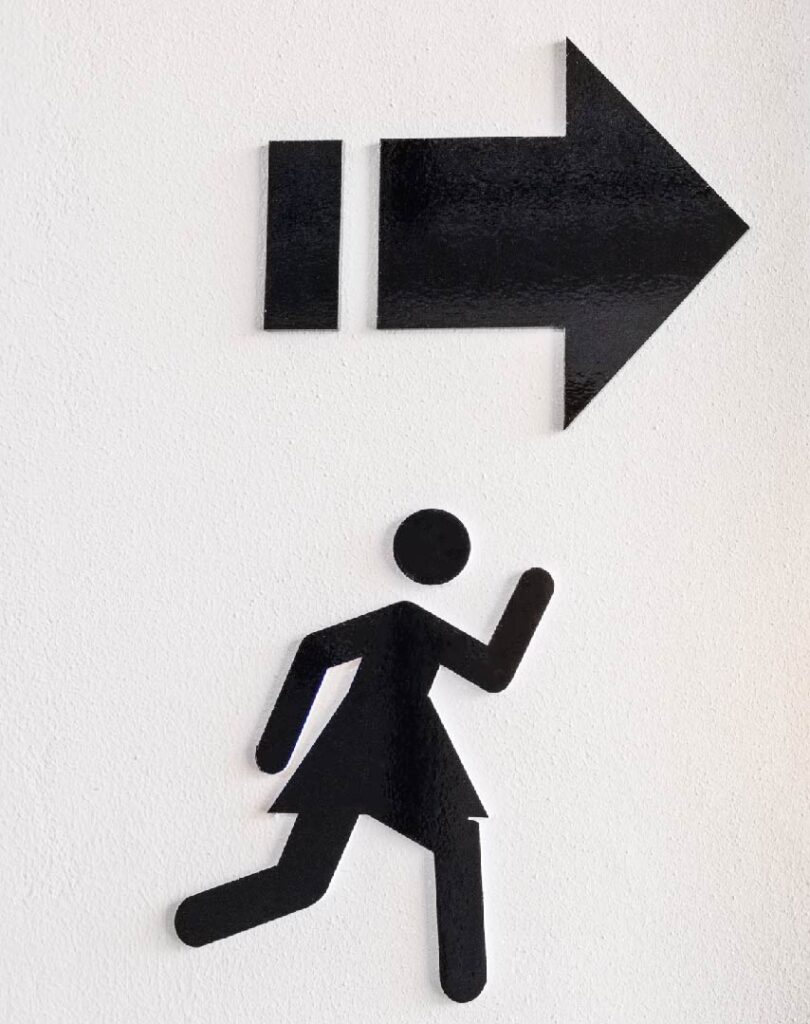Free shipping on all orders over $50 | Subscribe & save 15%
Free shipping on all orders over $50 | Subscribe & save 15%


Menopause is a natural transition that marks the end of a woman’s reproductive years. It brings about significant changes to various aspects of health, including bladder function. As estrogen levels decline during menopause, women often experience alterations in their bladder health.
In this blog, we’ll discuss the ways menopause could affect your bladder.
Menopause is a natural process that occurs when a woman’s reproductive years end. This typically happens between the ages of 45 and 55. This change happens when the ovaries produce less estrogen and progesterone, which are important hormones for the menstrual cycle. When hormone levels change and go down, women may have different symptoms that can be mild or severe.
Common symptoms of menopause include hot flashes, night sweats, and sleep disturbances, which can significantly impact daily life. However, in addition to these, menopause also causes issues “down there.
Many women experience physical changes such as vaginal dryness and discomfort during sex. Lower estrogen levels can affect the urinary tract. This can increase the chances of getting urinary tract infections, an overactive bladder, stress incontinence, and other issues.

Yes, menopause can cause bladder issues because of the decline in estrogen levels. This major hormonal shift can affect the tissues of the urinary tract, leading to a range of potential problems.
Urinary incontinence, or loss of bladder control, is one of the main symptoms of menopause. When a woman goes through menopause, she experiences a decline in estrogen levels. This contributes to a weakening of the pelvic floor muscles.
Your pelvic floor muscles support the bladder and urethra. As a result, many women may experience loss of bladder control when:
Basically, anything that may cause you to clench your pelvic area could lead to involuntary urine leakage. Learn more about pelvic floor physical therapy to support your muscles.
As mentioned above, menopause causes decreased estrogen levels. Women going through menopause may discover they experience more urinary tract infections (UTIs). The change in their hormonal environment contributes to weaker linings in the urethra and bladder.
These linings are your body’s last line of defense against harmful bacteria commonly found in urine. When they become weaker, your bladder wall and the whole urinary tract is more prone to irritation and infection.
Bladder pressure is a normal thing when you have to urinate. It’s your body’s way of urging you to head to the bathroom. When you’re experiencing pelvic discomfort and persistent bladder pressure, there may be more going on.
Menopause increases the sensitivity of your bladder. It’s the same story—the loss of estrogen causes your bladder tissues to grow weaker. When your bladder is full, you may feel uncomfortable due to sensitivity and pressure, prompting you to urinate.

For women already dealing with IC, menopause can worsen symptoms and complicate management. IC, also known as Painful Bladder Syndrome, is a chronic condition characterized by bladder pain, urinary urgency, and frequency.
Estrogen plays a key role in maintaining the health of the bladder lining. When this hormone declines during menopause, women with IC may experience increased inflammation and sensitivity of the bladder.
IC patients are already accustomed to using comprehensive approaches for management. So, they might have to add in hormone therapy to alleviate intense symptoms.
Menopause can have a significant impact on bladder health. It could lead to symptoms such as urinary incontinence, increased frequency, and urgency. If you, or someone you know, is going through menopause, it’s important to stay on top of your bladder health.
Healthcare providers can assist with behavioral therapies, medications, and in some cases, surgical interventions. But you can do your part as well. Stay hydrated and start practicing pelvic floor exercises.
Menopause is complex, so one solution might not work for everyone. With awareness and support, women can manage this transition while keeping their bladders healthy.

Sign up to receive wellness tips, updates, and more.